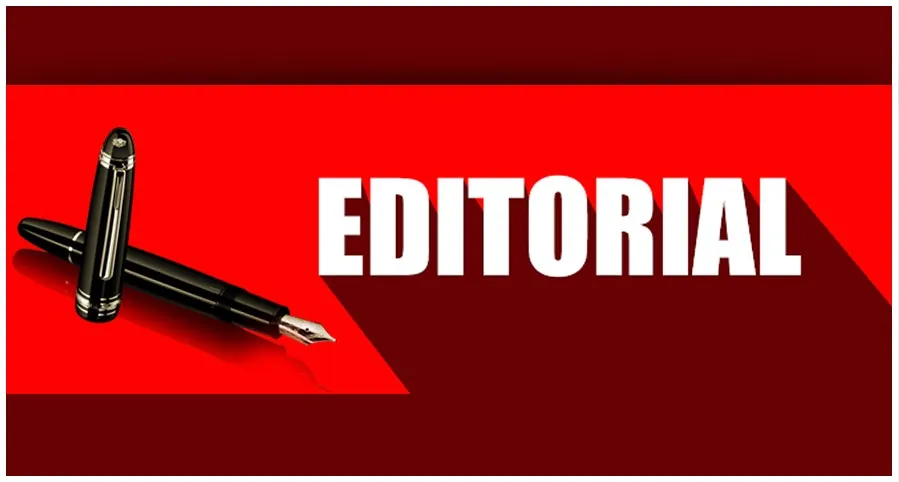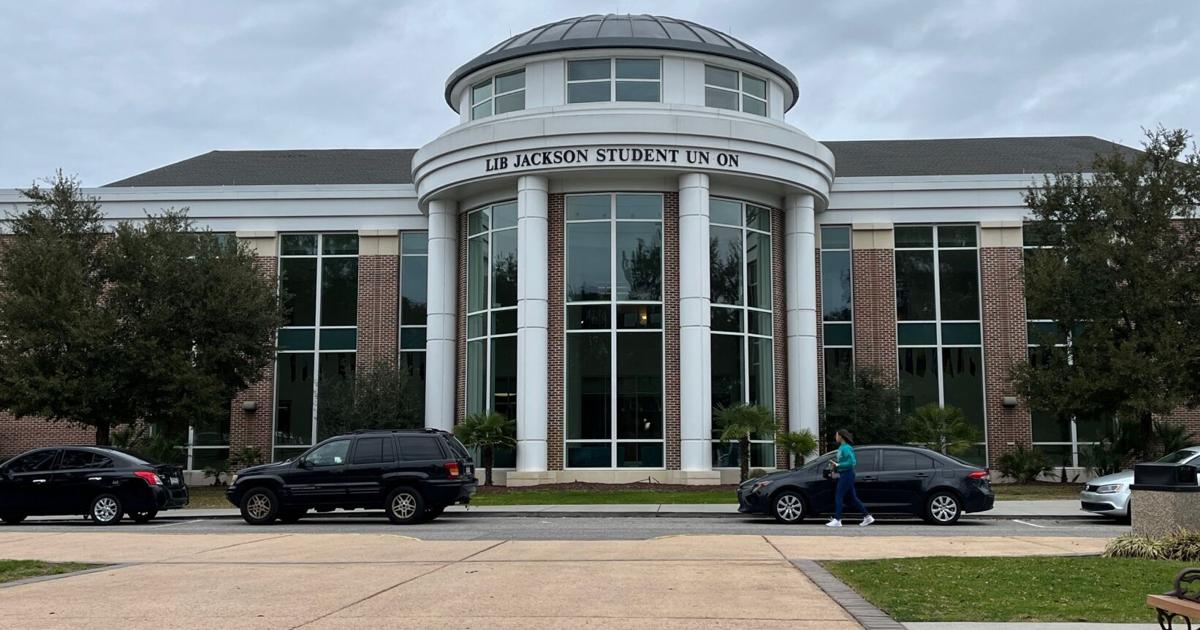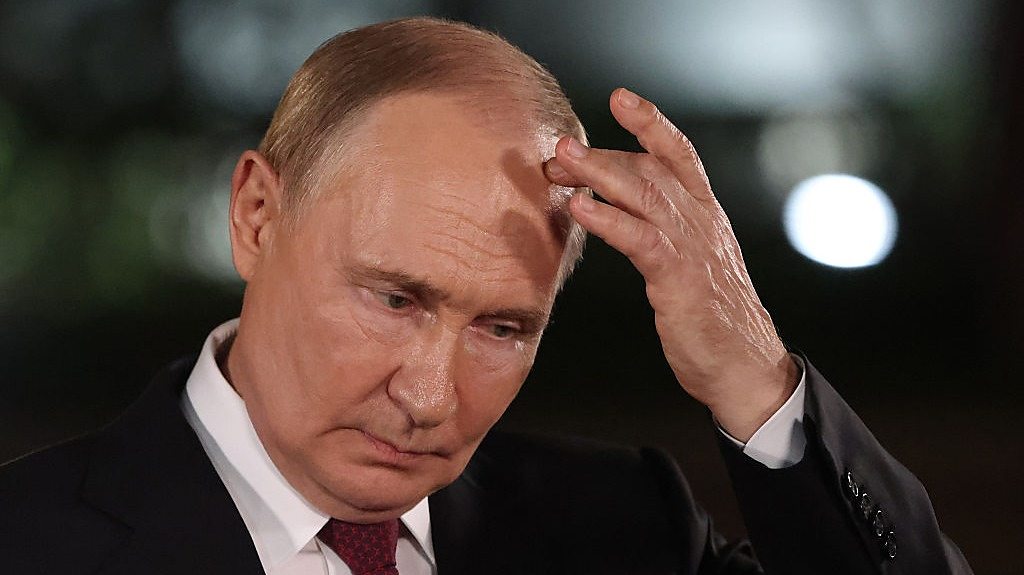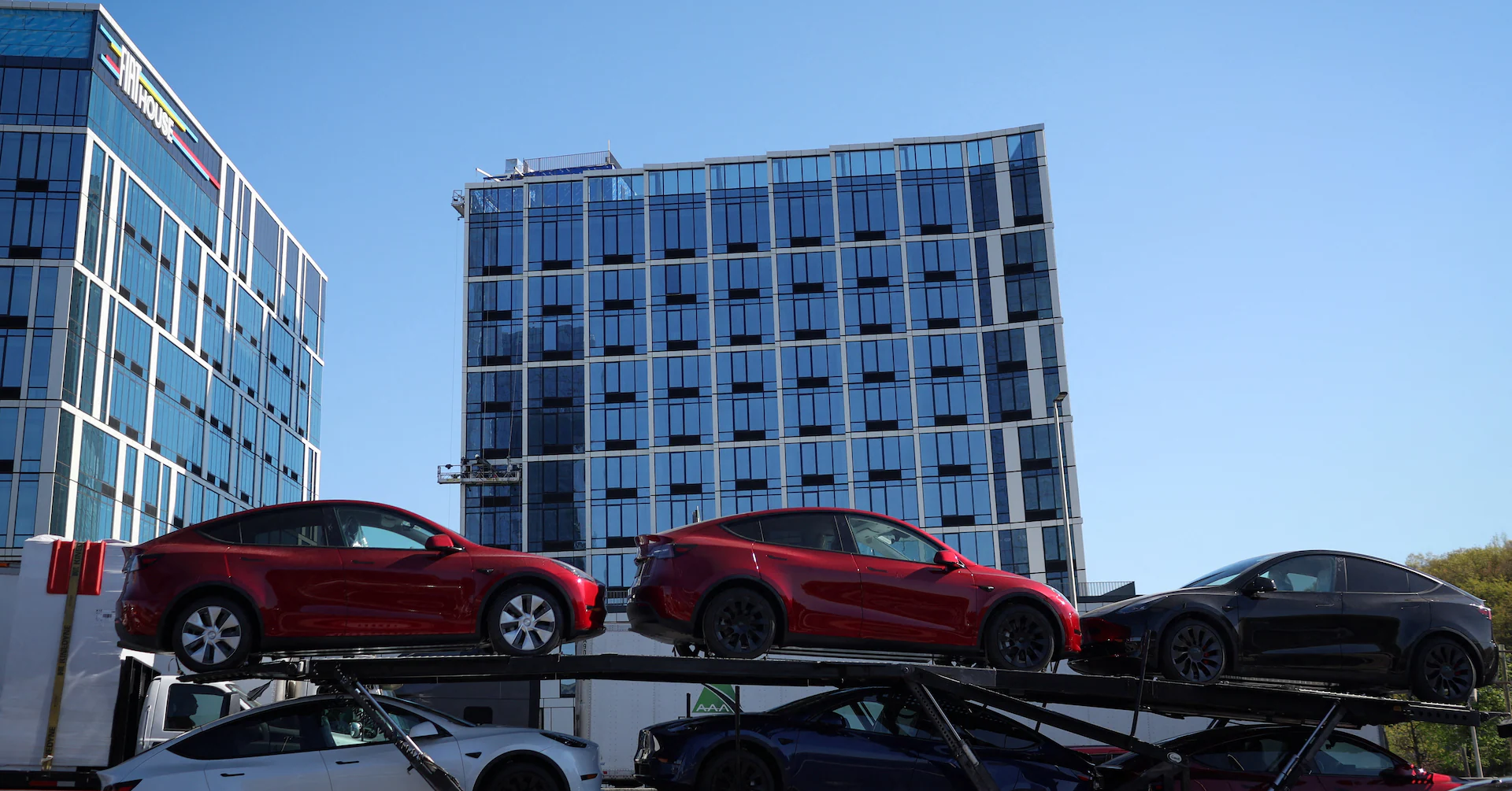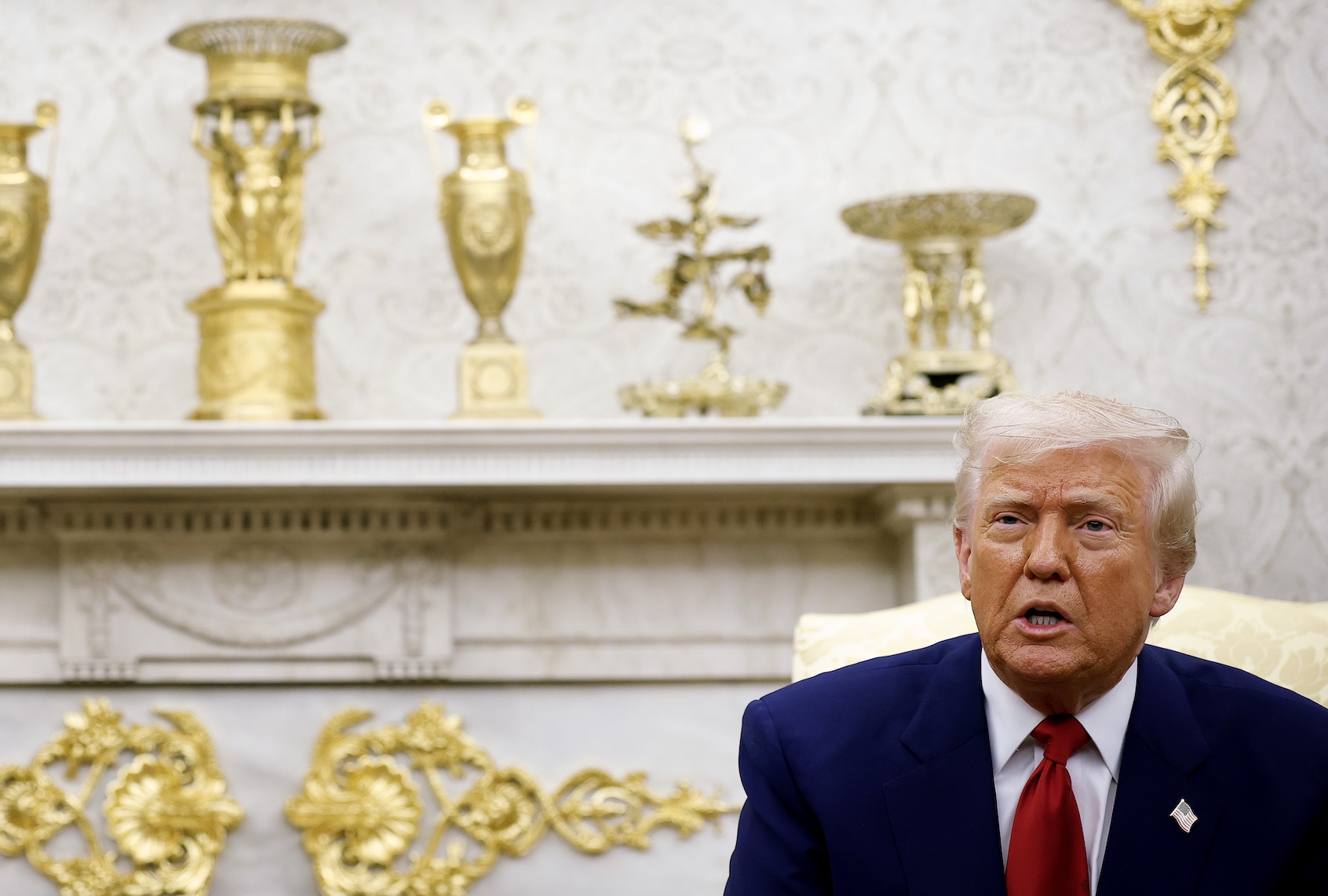
Before he died on Sept. 4 at the age of 99, psychologist Robert Jay Lifton left us with stark warnings about President Donald Trump and the American right. One of the country’s leading experts on how societies succumb to authoritarianism and collective cruelty, Lifton’s theory of “totalism” — an extreme, absolute devotion to a particular group or ideology — is essential for making sense of our present moment.
Writing about Lifton’s passing, New York Times columnist M. Gessen noted his observation that totalism “propels participants toward acting in the name of their ideology.” Lifton saw Trumpism, Gessen wrote, as “a totalist movement that promised to envelop its participants in a secure, closed universe of lies.”
But the psychologist knew that totalism encompasses more than authoritarian tendencies. It can help to explain social inequality, the culture of cruelty and how individuals treat one another in a society.
Trump and the larger right-wing’s revolutionary project has been called “Robin Hood in reverse,” where public money and resources are taken from the poor and vulnerable and given to the rich and powerful through legislation, such as the “Big Vile Bill,” and other policies that will make poverty, homelessness, hunger and other forms of social inequality worse.
According to a new poll released by the University of Chicago and The Associated Press-NORC Center for Public Affairs Research, Americans are sharply split along partisan lines over what causes poverty and homelessness — and what responsibility, if any, the federal government bears in addressing them. “Republicans are more likely than Democrats to cite personal choices as major factors for both poverty (77% vs. 49%) and homelessness (77% vs. 51%),” the survey found. “In contrast, Democrats are more likely than Republicans to cite lack of government support as major factors for both poverty (61% vs. 21%) and homelessness (63% vs. 26%).”
This divide is stark, and it backs up a recent observation by New York Times columnist Jamelle Bouie that the American right sees the market as the ultimate decider of survival. “The maintenance of a particular moral order in which survival — to say nothing of comfort — is earned in the market,” he wrote. “Those who can’t swim, or at least float, will sink.”
Since Trump’s return to power, this right-wing moral economy has become even more hard-hearted. Today’s conservatives and members of the right increasingly view human empathy as a weakness, something wholly alien. This attitude was reflected in Fox News host Brian Kilmeade’s suggestion on the Sept. 10 episode of “Fox & Friends” that mentally ill homeless people should be executed. After facing widespread condemnation, he apologized on Sunday for what he called his “extremely callous remarks.”
Decades of social science research shows that poverty — especially intergenerational poverty — is driven largely by structural and institutional forces beyond an individual’s control. A person’s family wealth, their access to education and even the zip code they’re born into shapes their chances at economic mobility. The myth of individualism and “pulling oneself up by the bootstraps” rarely stands a chance against those realities.
But there’s another issue at play that’s not addressed in the survey, at least not in the form of a question: Whether the American people are capable of connecting poverty, inequality and homelessness to the collapse of democracy and civil society under Trumpism.
But there’s another issue at play that’s not addressed in the survey, at least not in the form of a question: Whether the American people are capable of connecting poverty, inequality and homelessness to the collapse of democracy and civil society under Trumpism. Sadly, the aggregate findings from the poll — and decades of other research — suggest the answer is no.
Americans have historically been hyperfocused on individualism, which can make community-oriented thinking difficult. Europeans, by comparison, are better able to connect their individual troubles to larger systems of power and institutions.
For example, while 76% of those surveyed — including 80% of Democrats and 72% of Republicans — believe the federal government should be responsible for addressing poverty, 6 in ten cite personal choice as why people remain in poverty or are homeless.
Summarizing the findings of the new poll, Bruce D. Meyer, a professor at the University of Chicago Harris School and one of the lead researchers on the project, told the Associated Press that “people are a little conflicted…[about] the complexity of what leads people to get in trouble in terms of their economic circumstances. And I think a lot of people are generous at heart and will help people out and think the government should as well, even when individuals aren’t blameless.”
This conflict is shown in other research, including a recent Pew poll that found approximately half (51%) of American adults want a bigger government that provides more services. But 47% desire a smaller government that does less. There are huge partisan divides: 75% of Republicans want a smaller government and 24% want a bigger government. Democrats want the opposite: 79% support a bigger government, and 20% want a smaller government.
Today’s Republicans are driven by a small government ethos. President Ronald Reagan famously articulated this vision: “I think you all know that I’ve always felt the nine most terrifying words in the English language are: I’m from the government, and I’m here to help.”
But as Trump expands his power and control over all areas of American life, those same so-called principled conservatives who spent decades howling about “states’ rights” and “big government” have fallen deafeningly silent. When Democrats like Barack Obama and Joe Biden were in office, these people waved their pocket Constitutions and wrapped themselves in the American flag as “patriots” and “defenders of individual rights and liberties.” Now, their values have been revealed as a sham — and about obtaining power to impose their will on other people.
Want more sharp takes on politics? Sign up for our free newsletter, Standing Room Only, written by Amanda Marcotte, now also a weekly show on YouTube or wherever you get your podcasts.
Research shows that today’s Republicans — especially the white working-class people who form the base of Trump’s MAGA movement — hold some alarming ideas when it comes to the social safety net.
They support government assistance primarily for white people like themselves, whom they deem deserving and to be “real Americans.” When they use programs like welfare or food stamps, they see it as temporary and justified. But when Black and brown people — especially women — use the same programs, they are labeled lazy, undeserving takers or “welfare queens.” They are ready, if not eager, to elect leaders who are willing to “break the rules” to “get things done.” Federal power, they believe, should be wielded to punish those they dislike.
Undergirding these notions, as well as Trump’s appeal to the white working-class, is how that group “resents professionals but admires the rich,” as Joanne C. Williams pointed out in a much-cited 2016 article published in the Harvard Business Review: “The dream is not to become upper-middle-class, with its different food, family, and friendship patterns; the dream is to live in your own class milieu, where you feel comfortable — just with more money.”
While noting that “[p]rogressives have lavished attention on the poor for over a century,” Williams argued that the government’s focus on means-tested programs to alleviate poverty have excluded the middle class and “are a recipe for class conflict.”
But a society’s values are, in large part, reflected by how it treats its most vulnerable members — and America in the 21st century is growing increasingly Dickensian. In many cities today, it is a crime for the homeless or poor to use public spaces. Recently, Trump signed an executive order directing the federal government to use its resources to forcibly place homeless people in camps, institutions or otherwise remove them from society. Under Trumpism, America’s prisons and mental health facilities are in danger of becoming de facto poorhouses. “Ugly laws” could soon follow.
We need your help to stay independent
As American society continues to fracture, the public and their leaders must broaden their understanding of how poverty and other forms of social inequality are directly linked to structural — and political — violence.
“[W]hen a pregnant woman dies of sepsis in a hospital that could have helped her but is legally prevented from doing so, that’s political violence,” author Jessica Valenti recently wrote. “It’s political violence when a child is shot in their classroom because lawmakers refuse to take action on guns. An abortion provider being assassinated after years of conservatives calling them ‘baby-killers’ is political violence, as is the death of a person who had their medical claim denied by companies more interested in their bottom line than people’s lives.”
She concluded, “We live with this kind of violence, we experience it, every single day. We just don’t call it ‘political.’ To conservatives, it’s not even violence.”
Healthy democracies have a strong social safety net that helps to prevent and alleviate poverty and other forms of social inequality. Autocrats, authoritarians and demagogues, though, have little — if any — sense of obligation to the public good. They view power as a way of accumulating more wealth and resources for themselves and for their loyalists. These leaders have an interest in keeping their constituents vulnerable. Economic insecurity breeds malleability, and an increased willingness to seek out the protection of a strongman. Inequality, they know, is a dagger to the heart of democracy — and it’s one they enthusiastically wield.
